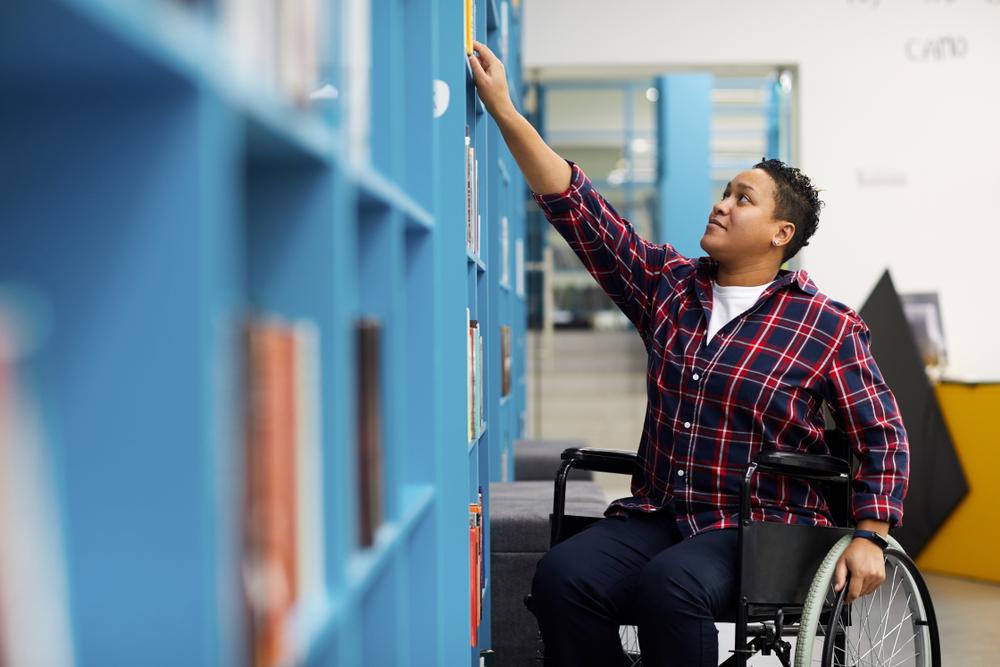‘For too long, the lived experiences and voices of disabled people have not been at the heart of research and policymaking,’ said Eilionóir Flynn, one of Europe’s top researchers in the field of disability rights.
Europeans with disabilities are still at a higher risk of poverty and social exclusion than those without disabilities.
For Professor Eilionóir Flynn, Director of the Centre for Disability Law and Policy (CDLP), National University of Ireland, Galway, a new path to equality for persons with disabilities is needed – one that makes the lived experiences of disabled persons the core of policy and legislative reform.
‘Lack of political will or pressure, the need for Member States to commit additional resources to support full inclusion, and short-term political thinking are some of the main obstacles to policy and legislative progress on disability rights,’ said Professor Flynn.
As scientific coordinator of the Disability Advocacy Research in Europe (DARE) project, Professor Flynn is training a new generation of European researchers to respond to the challenges facing persons with disabilities.
‘Our goal is to give legitimacy, through research, to the lived experience of persons with disabilities, as a basis for law reform,’ said Professor Flynn.
DARE’s 15 PhD researchers are studying different aspects of disability rights in seven different partner organisations across Europe. Based in Belgium, Ireland, Portugal, Switzerland, Iceland, the Netherlands and in the UK, the researchers spend time at civil society organisations where they are putting the skills and research knowledge they have into practice.
For example, the 15 researchers are working on a variety of topics – from children and youth with disabilities to end-of-life decision-making and the relationship between national and international disability rights institutions with civil society.
‘All our researchers are working on really interesting ideas and applying them to different contexts in light of the UN Convention on the rights of persons with disabilities,’ she said.
‘They are organised in three main clusters. Those clusters are “voice”, “power” and “change”. So we are interested in how the voices of disabled people can be used to influence change and the power that different actors have – whether they are civil society organisations or national human rights institutions or policymakers and disabled people’s organisations themselves.’
In an interview, Professor Flynn explains how DARE is progressing beyond the state-of-the-art on disability rights research by exploring under-researched issues and applying an interdisciplinary approach.
Edited excerpts of the interview follow.
What is the role of disability research in policy today, and how will DARE improve the status quo?
The inspiration for the DARE project comes from the concept of “nothing about us without us” – a motto of the global disability rights movement. For too long, the lived experiences and voices of disabled people have not been at the heart of research and policymaking.
Often, policymakers only ask for narrow kinds of research evidence to inform their decision-making – including quantitative or statistical data which is often limited or incomplete and does not reflect the complexity of the lives of disabled people and their actual daily experiences.
DARE will challenge the status quo by providing new kinds of research evidence to inform policymakers, including research that has been designed in collaboration with disabled people and their representative organisations, to ensure it is accurate, comprehensive and up to date.
What are the DARE researchers working on?
Our researchers are working on issues that are related to the UN Convention on the Rights of Persons in different ways. Disability is relevant to every area of law and policy, including the fields of employment, education, health, housing, gender, equality and human rights. So major structural change is needed across all these areas to ensure that existing systems and processes are fully accessible for disabled people to participate in. It is also important to ensure meaningful participation of disabled people in all aspects of society.
Most of the researchers are based in academic institutions, and they have all had opportunities to undertake secondments in non-academic organisations, including through working with policymakers at the UN, and in disabled people’s organisations.
During their secondments, they work on a concrete project related to their own research, where they can apply their academic knowledge to the policy context. This gives researchers a unique insight into the realities of policy development and the kinds of arguments which are persuasive to policymakers while being grounded in research evidence.
What kinds of law and policy reforms are the researchers working on?
Some projects are looking at the experiences of different groups like women with disabilities, older people with disabilities or disabled children. Others examine specific issues like violence, access to justice, reproductive rights, end of life decision-making, social movements and participation in research. We also have researchers working on the responsibility of different actors to advance disability rights including the courts, national human rights institutions, development aid funders and UN bodies.
We plan to disseminate our findings at an event from 9-14 May in Brussels and share them with a broad public audience, including policymakers and disabled people’s organisations.
The research in this article was funded by the EU. If you liked this article, please consider sharing it on social media.

